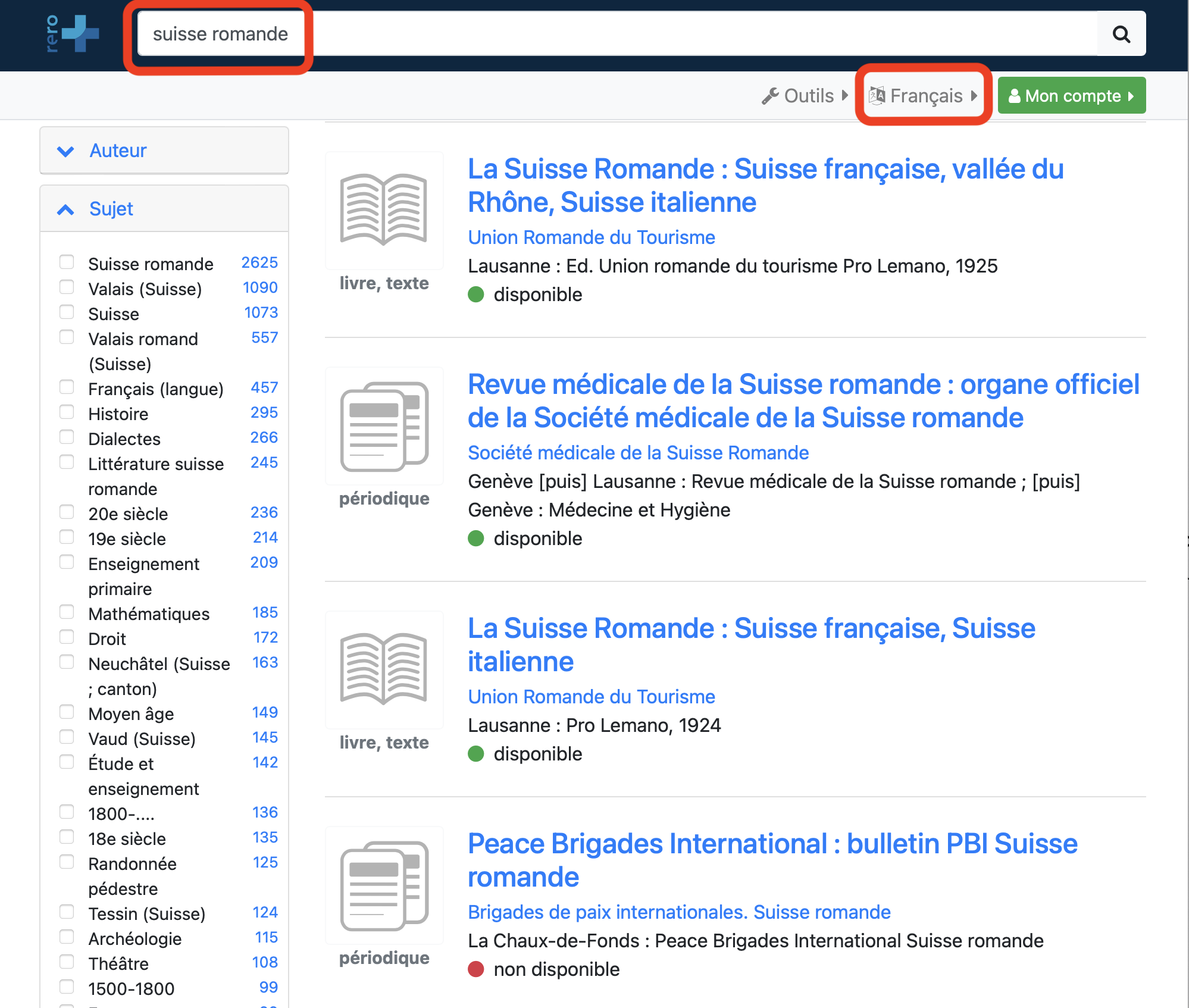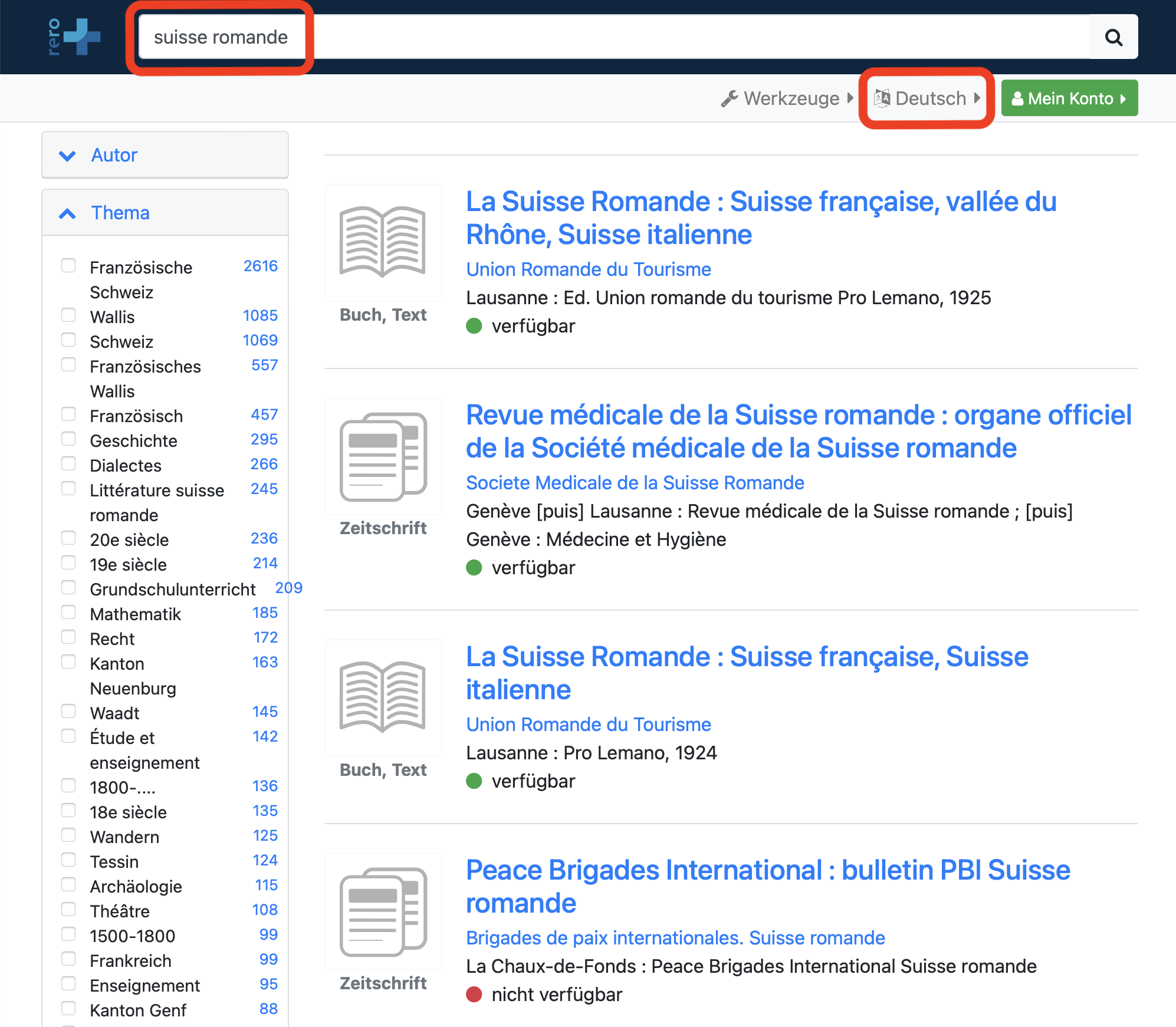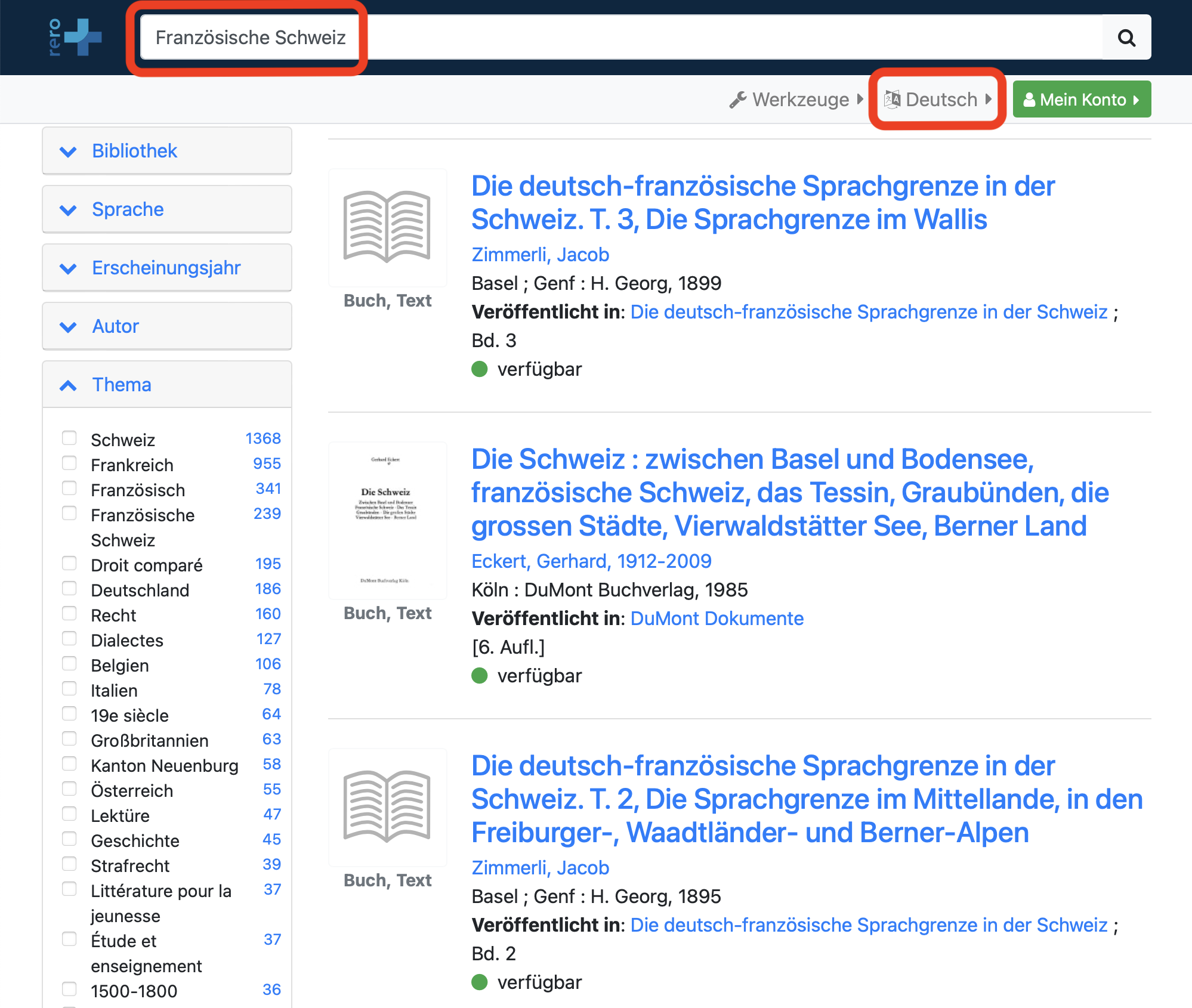With RERO ILS version 1.24.0, a new version of MEF (Multilingual Entity File) has been released. This version adds a new dimension to the multilingualism of RERO ILS. In addition to authorities for agents (people and corporate bodies), MEF now also offers subject authorities (concepts and places) in their French and German language versions.
MEF's multilingual authorities now feed the facets of the RERO ILS public and professional interface with the ‘concepts’ and ‘places’ authorities as well as the clickable keywords displayed in individual bibliographic records. The language of the facets and keywords changes according to the user's language.
Benefits for the public
This version of MEF, developed at the request of the Médiathèque Valais, makes the catalogue more accessible to the German-speaking public. Until now, most of the terms in the Subject facet were only displayed in French, even after the interface language was changed. This new feature makes it possible to access catalogue resources by subject in the user's own language (French or German), regardless of the language of the resource, or even if there is no language in the resource (Médiathèque Valais, for example, possesses around 45,000 images and 27,000 scores that do not necessarily have textual content, and therefore no language).
Benefits for library professionals
For professional users, the new MEF makes it possible to carry out simultaneous subject indexing in French and German in a single operation, using the Rameau repository in French and the GND repository in German. Until now, subject indexing was carried out in just one language (usually French).
In addition, it is no longer necessary to know both languages to perform bilingual subject indexing. If a subject recorded in French has a German equivalent, it will automatically be indexed.
Results screen in the French version of RERO ILS

The same results screen after switching the interface to German

The RERO ILS interface with the same query in German

As a reminder, MEF is a tool for aggregating the various national authority files, in order to allow multilingual use in the context of Swiss libraries.
Thanks to this new feature and the entire underlying synchronization infrastructure between the source repositories, MEF and RERO ILS, several hundred thousand records indexed in French in RERO ILS have automatically gained the German-language equivalents of their subjects. However, there is still work to be done to make bilingual the subject and place authorities that have not yet been aligned in the source files.
The new MEF also offers the prospect of enabling libraries that are not part of the RERO ILS network to carry out simultaneous bilingual Rameau/GND subject indexing, as MEF is available in the form of an API on request. It can therefore be integrated into third-party library management systems.
Finally, it should be noted that the methodology put in place could enable MEF to be extended to indexing vocabularies in other languages (Italian or English, for example), depending on the requirements.
The RERO+ team would like to warmly thank the Deutsche Nationalbibliothek for the lengthy work carried out to establish equivalences between the indexing vocabularies, and in particular Ms Elke Kolbe and Ms Yvonne Jahs, for their invaluable collaboration, which has enabled MEF to enrich itself with a great number of correspondences between the French-speaking (RAMEAU) and German-speaking (GND) authorities.
